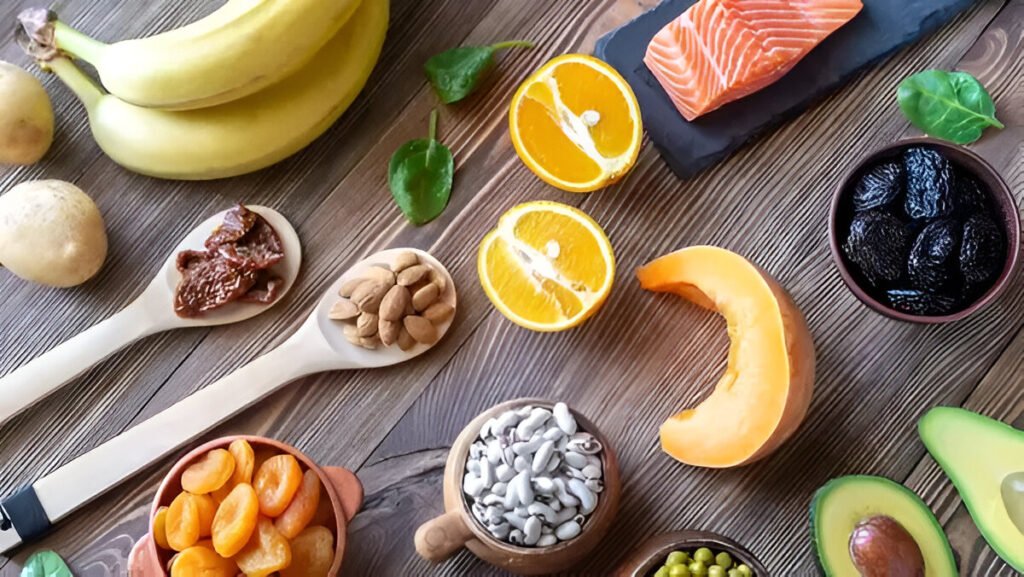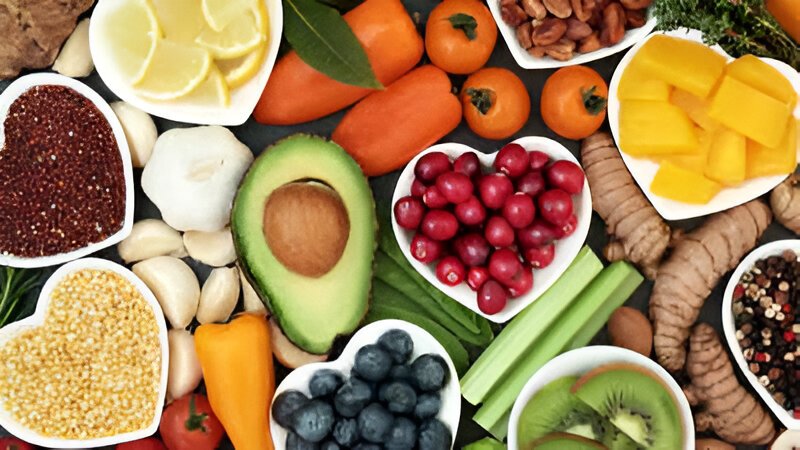
In today’s busy lifestyles, discussions about health center around calories, protein, and sugar. But what if we informed you that an under-appreciated mineral with an abundance in everyday fruits and vegetables can help reduce your risk of heart attack by as much as 39%?
We’re talking about potassium—a vital nutrient that quietly supports some of the most essential functions in your body, from keeping your heart beating steadily to helping your muscles contract and your nerves function properly.
Why Potassium Matters More Than You Think
Potassium is usually relegated to the background by more “trendy” minerals such as calcium or iron. However, it is the star of the show when it comes to overall health. It helps control blood pressure, assists in maintaining water balance, supports nerve and muscle function, and prevents diseases such as stroke, osteoporosis, and even type 2 diabetes.
In the opinion of nutritionist Alex Yanez, potassium is not only a heart-healthy mineral—it may be a life-changer. In an interview with El Confidencial, Yanez emphasized that potassium helps lower blood pressure, which directly correlates with a reduced risk of heart attacks. “Potassium lowers our blood pressure,” he said. “It also has antioxidant properties and may reduce the chances of Alzheimer’s disease.”
Potassium’s Hidden Superpowers
Here’s what makes potassium truly fascinating: when it dissolves in water, it forms positively charged ions that can conduct electricity. This specific feature is essential for passing signals from your brain to the rest of your body. Indeed, approximately 98% of the potassium found within your body is contained within your cells, indicating just how significant it is to normal physiological processes.
Additionally, potassium has a protective function in your bones. It reduces the loss of calcium in urine and increases the absorption of calcium, which is instrumental in avoiding bone problems such as osteoporosis. That is not all—it can even prevent muscle cramps and retard muscle breakdown.
Research has also made connections between greater potassium consumption and better cognitive abilities. A major study found that individuals suffering from high blood pressure (hypertension) are at higher risk of developing Alzheimer’s, but potassium can reduce those figures by controlling blood pressure better.
The Sodium-Potassium Balance: A Subtle Dance
All of us take in a lot more sodium than we should, courtesy of processed foods, salted snacks, and eating out. Excessive sodium consumption can result in high blood pressure, kidney problems, strokes, and even cancer of the stomach. This is where potassium steps in like a natural detox agent—it helps your body flush out excess sodium, restoring balance.
Maintaining the correct ratio of sodium to potassium in your diet is critical. When potassium intake is high and sodium intake is controlled, the benefits multiply. Better heart health, improved kidney function, and stronger bones are just a few of the advantages.

How Much Potassium Do You Need?
Here’s where things get a bit tricky. Yanez recommends a maximum daily intake of 500 milligrams of potassium—especially if you’re considering supplements. Though potassium is critical, more doesn’t necessarily equal better. Taking too much may create side effects like nausea, vomiting, weakness in the muscles, abnormal heart rhythms, and, in extreme cases, chest pain. It’s best to talk with a healthcare provider prior to taking potassium supplements.
The good news is that it’s not only safe to meet your daily potassium needs through foods, but it’s also tasty and straightforward.
Best Potassium-Rich Foods to Incorporate into Your Diet
You don’t have to spend money on fancy health supplements or exotic superfoods to get your potassium. Common foods are a great source. Here are some great ones to add to your diet:
Bananas: Maybe the most popular potassium source. They’re easy to take on the go, sweet, and ideal for munching.
Spinach: Loaded with nutrients, spinach packs a healthy dose of potassium. Mix it into salads, smoothies, or sautéed meals.
Potatoes (with skins): One of the richest potassium foods, particularly when roasted or baked.
Beans: Kidney beans, black beans, and lentils are all excellent sources and also good for fiber and protein.
Milk and Milk Alternatives: Fortified plant milk and dairy provide both potassium and calcium.
Fish: Salmon and tuna are not only high in omega-3s but also in potassium.
Nuts and Seeds: Almonds, cashews, pumpkin seeds, and sunflower seeds make excellent snack choices that count towards your daily quota.
Final Thoughts
Potassium is no longer the plucky underdog—it deserves a starring role in your health regimen. With protective benefits for the heart, enhanced bone health, and cognitive wellness, this mineral does more than merely stabilize blood pressure.
By making a few simple food choices—such as eating a banana rather than a cookie or adding some leafy greens to your meals—you can naturally boost your potassium levels. And in doing so, you might be taking a significant step toward an extra-long, healthier life.
So next time you do your grocery shopping, put the spotlight on potassium-rich foods. Your heart—and your whole body—will thank you.







